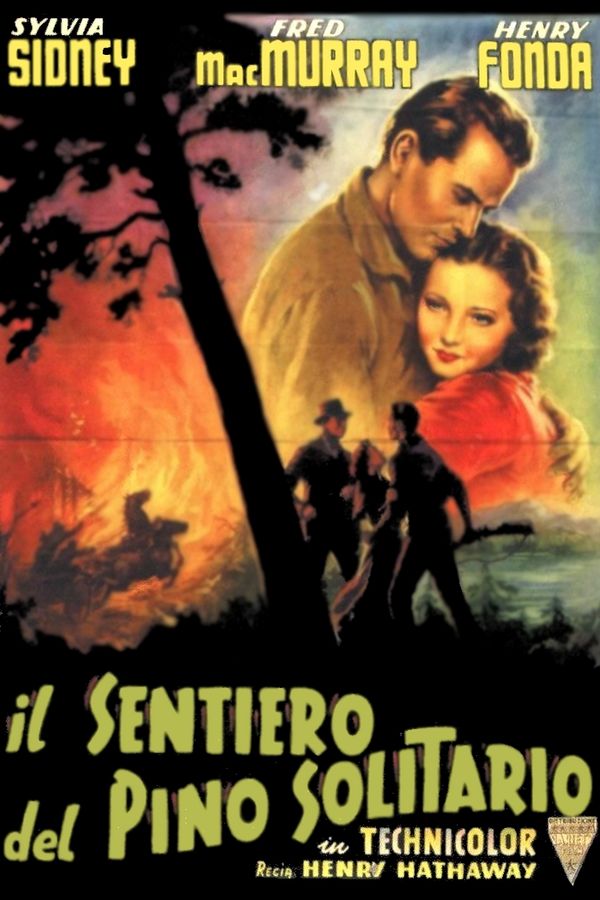

The quality actor we know and love starts to shine through when Dave has to make his tough, transformative decision near the end, and there is enough of a gradual slide toward the change that it works still, it's a bit late to save the rest. Henry Fonda does his best to be brooding and menacing as Dave, but it's a fairly one-note performance.

Outside of one kiss, there is a lot of avoidance followed by a lot of resignation and acceptance, but not much heat! Likewise, the love triangle is practically a non-starter. Stern yet polite stares are the most common weapon of the warring factions, and though these do give way to fisticuffs, the melees are either painfully slow and off the mark (Fred MacMurray hits like a girl, y'all!) or sped up to the point of being comedic. There is a lot of anger, but not much fire. The problem is that Hathaway's film is lacking in any real gumption. Which is totally fine, a melodrama of this kind is often enjoyable for its predictability, one expects to have the emotional buttons pushed. While I do realize this flick is pretty old, I would wager it was already a fairly hokey and manipulative tactic back then. Try to imagine what the Falins could do to the Tollivers that would make the business-minded Jack want to pick up a gun and shoot somebody, and I bet you'll have figured out the third-act fulcrum. There are several dramatic twists in The Trail of the Lonesome Pine, but none that weren't done a million times before and a million times since. Naturally, he runs afoul of Dave's bruised ego, and then he runs afoul of the Falins, and Jack quickly stops decrying the barbarous ways of fightin' hill folk and nearly gives into the violence himself. country manners, as Jack convinces June and her little brother Buddie (played by Spanky) that education is worthwhile and goes about building his railroad. The city boy saves Dave's arm, convinces his Uncle Judd (Fred Stone) to sign on with the company (making the bumpkins all rich in the process), and as if that weren't enough, steals the heart of June (Sidney), the pretty young cousin Dave was set to marry. This would have been fatal were it not for the sudden intervention of Jack Hale (MacMurray), a railroad man looking to buy the Tolliver land to get at their coal reserves. Dave was recently wounded in a shootout with the Falins, and the injury has gotten infected and turned gangrenous.

No one rightly cares, though, the battle is now just part of their everyday DNA. The Tollivers are mountain people who have been mixing it up with the neighboring Falin family for generations, a feud that goes back so far, its origins are lost. This version starred Henry Fonda as Dave Tolliver, the scrapping elder cousin of the Tolliver clan. The Trail of the Lonesome Pine is based on a novel by John Fox Jr., and this appears to be the fifth time it had been brought the screen. Unfortunately, while nature may stand the test of time, some stories do not. There are some gorgeous views of cloud-covered mountains and the misty valleys below. Howard Greene still has the power to impress. It's the first Paramount feature to be shot in Technicolor, and one of the first movies using the three-strip process to film outdoors. As melodramas go, Lonesome Pine is predictable and limp, but as a technical achievement, it's still fairly grand. Made in 1936, it's a pretty mediocre movie, despite its excellent cast-Henry Fonda, Fred MacMurray, and Sylvia Sidney star, and Spanky McFarland from "Our Gang" is one of the supporting players. Henry Hathaway's The Trail of the Lonesome Pine is one of those movies that now survives due to its historical significance more than its ability to entertain.


 0 kommentar(er)
0 kommentar(er)
